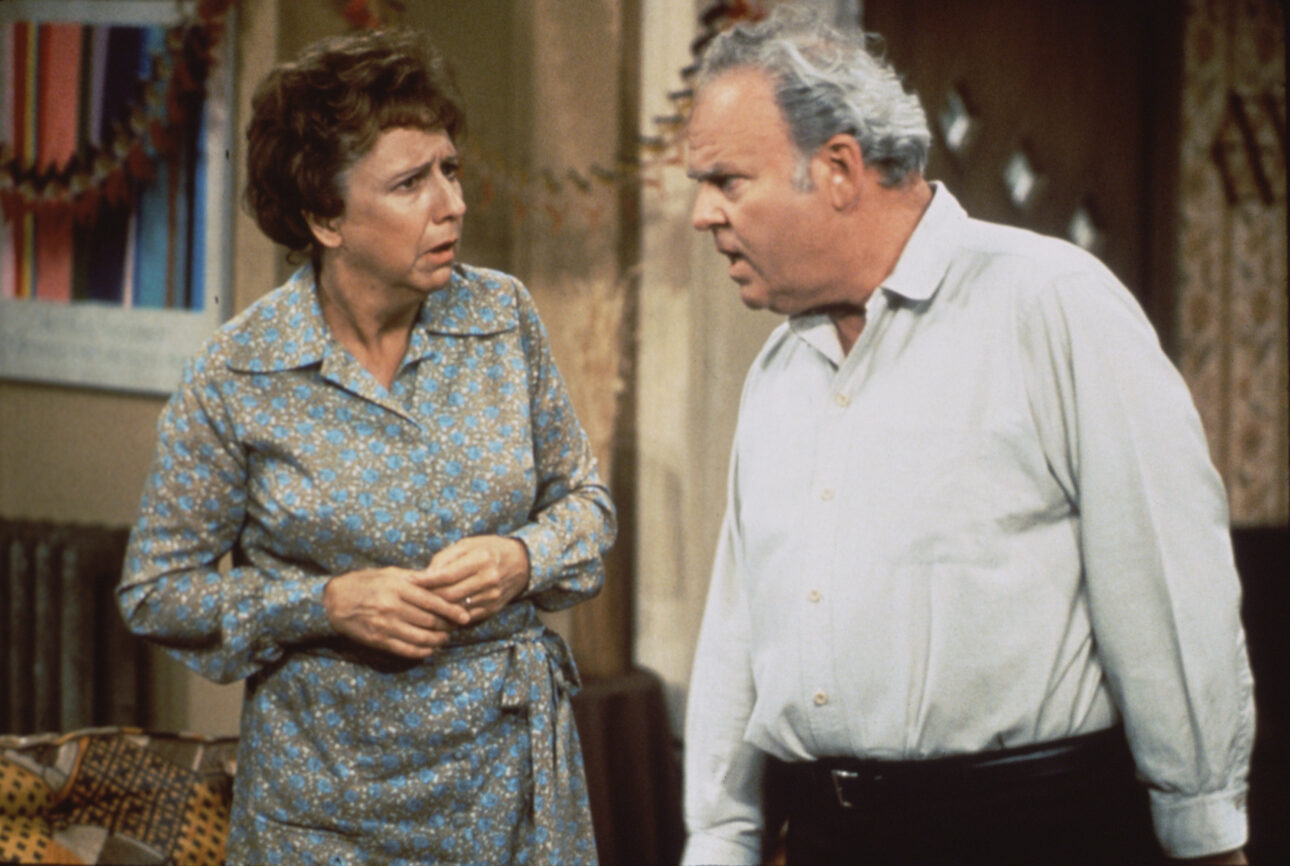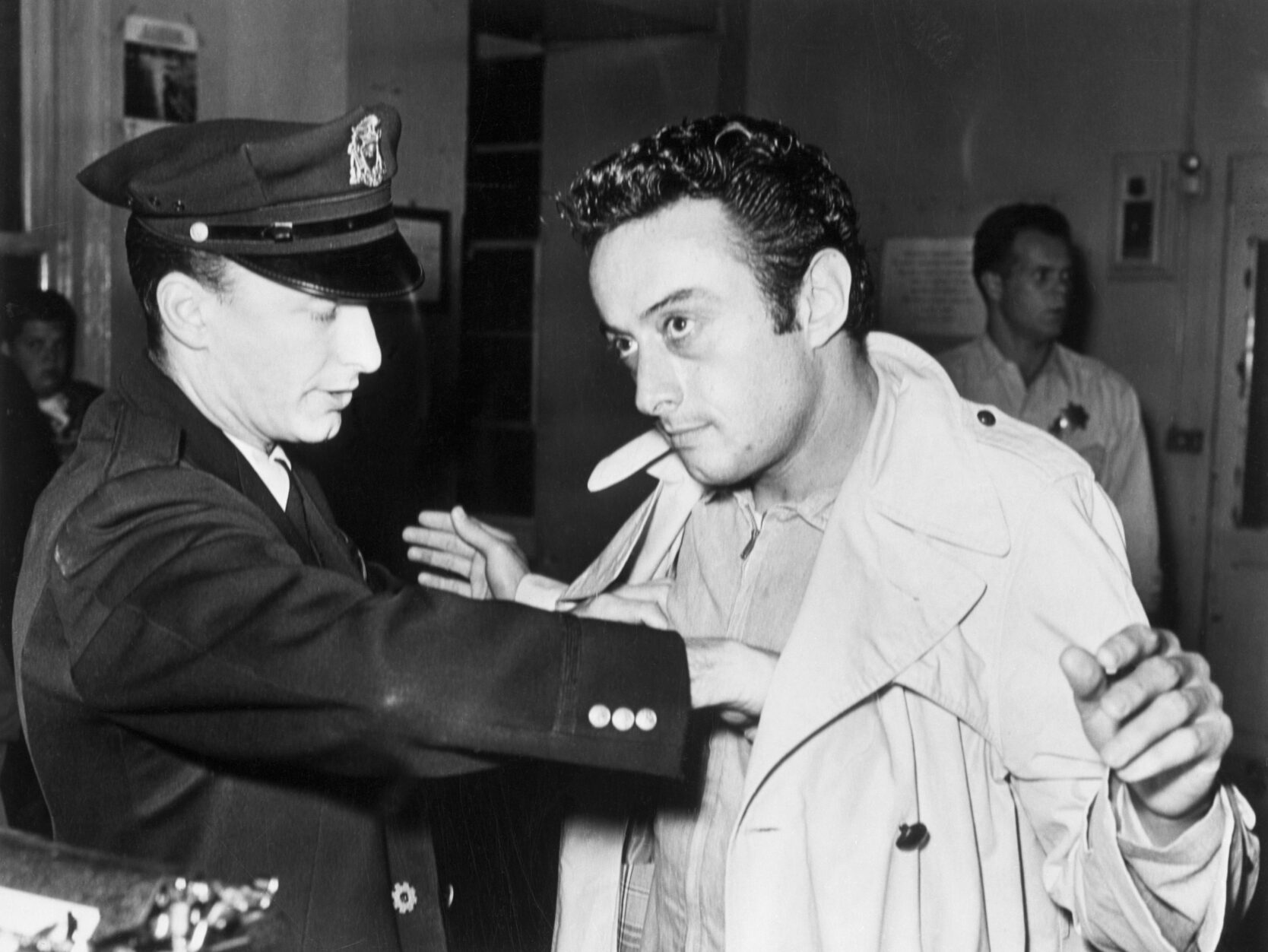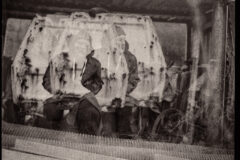The other day, as I procrastinated my morning workout, I flipped on the TV and landed on Dirty Harry. About 30 minutes in, resigned to get moving before work, I paused the movie. My TV has the feature that shows actor credits, and it highlighted Richard Lawson and David Gilliam as homosexuals that were targeted for murder. It’s Dirty Harry, the language was controversial, complete with gratuitous use of the N-word.
But then again, there’s a kind of justification that Harry hates everyone equally. The ’70s were a more free time, to put it lightly.
To be honest, I don’t think that’s necessarily a bad thing. And I don’t believe people are as fragile as Hollywood and the media think they are. Consider the work of Sam Peckinpah, who is accused of glorifying misogyny and violence—for example, the rape scene in Straw Dogs, which still stirs up controversy because it plays with the idea of pleasure through heinous violence.
This led me to ponder the influence of Norman Lear and his iconic character, Archie Bunker. In today’s climate, there’s no chance that such a character would make it into mainstream programming.
Interestingly, Archie Bunker, Straw Dogs, and Dirty Harry all came out in 1971. After some research, it became obvious why. The shift from the ’60s to the ’70s ushered in social change, with the civil rights movement and the Vietnam War influencing filmmaking. Nudity and violence in film became more blatant. Censorship boards emerged, but outlaw directors pushed boundaries. Films like Easy Rider broke the mold.
Back in the day, actors and directors doing large amounts of drugs and alcohol was just another day at the office. This was the era when films like Deep Throat, released in 1972, were, to put it mildly, pushing the boundaries of sexual content. However, the film that truly changed my perspective was Clockwork Orange. Anthony Burgess’s book was written in 1962 and the movie version released in 1971. I encountered it as a young teenager, and its impact stayed with me. The film delves deep into the complexities of human psychology and our ability to control it.
Given the current climate, I’m convinced that such groundbreaking films and shows would never make it to the screen today.

So we’re left with a question: Is art imitating life or shaping it? These films and shows don’t necessarily take a stance; instead, they provoke thought by confronting issues head-on. They offer a raw, unfiltered look at life as it unfolds. Growing up in Anaheim with Disneyland as a backdrop, I always knew that narrative was manufactured. Real narrative has two sides and the controversy of the push and pull of why we can’t get along.
That’s why I have such a distaste for the sensitivity of today. Take the Gina Carano situation. She made a statement and was ostracized. I don’t really care what her opinion is; she should be allowed to express it without the threat of being silenced.
I understand that this is the world we used to live in, not the one we live in now. So on one side, we have organizations like Times Up fighting for equal pay, which every actor deserves. It’s criminal that Charlize Theron, Jennifer Lawrence, and Michelle Williams have to fight for something men naturally receive. Then Barbie comes out, and Greta Gerwig instantly becomes the most successful female director in history.
But on the other side, we have so few people fighting for “Freedom Of Speech” (plenty of lip service for it, very little true bravery in standing up for it). This is something the country was supposed to be founded on. But today we apparently can’t look past the fact that something being controversial, to open up lines of communication and conversation, is not the same as something crossing a line for titillation.
People should be free to express their opinions without becoming targets of cancel culture. Take J.K. Rowling and Dave Chappelle, for example. Chappelle’s unapologetic response was authentic to who he is, challenging our society’s increasing sensitivity. While the media capitalizes on such controversies, we often overlook the collateral damage to individuals caught in the crossfire.
Maybe the real issue is the media itself. Let’s face it, generating revenue from controversy isn’t a foreign concept in American business—just ask Fox News or TMZ. The media often leans into one side, and we forget, or don’t care, that there could be an underlying victim. If art matches the sentiment of real life, whether on the street or in a boardroom, let’s be honest about it. Let’s not cave to the first thing that offends someone or, even worse, wish the talent into oblivion.
Great art comes from breaking boundaries. If the threat is losing your livelihood because opinions become the facts of indictment, then maybe we should look at who is doing the indicting. Too often, mob mentality rules, fueled by social media. I understand well enough to know it can be manipulated by bots and fake comments, but enough momentum and it becomes fact, which in turn can shut creativity down.
If art reflects real life, let’s be honest about it. We shouldn’t suppress creativity due to public sensitivity. Too often, social media-driven mob mentality dictates “public opinion,” which can be manipulated and can stifle creativity.
Lenny Bruce, the great, groundbreaking, and often persecuted comedian of the early ‘60s, I still applaud you. I can only hope you’re making your version of your creator laugh his ass off, because you were brave enough to not give a fuck, and take the punishment to say what you felt.
And that was 60 years ago…
Les Borsai is the co-founder of Wave Digital Assets





